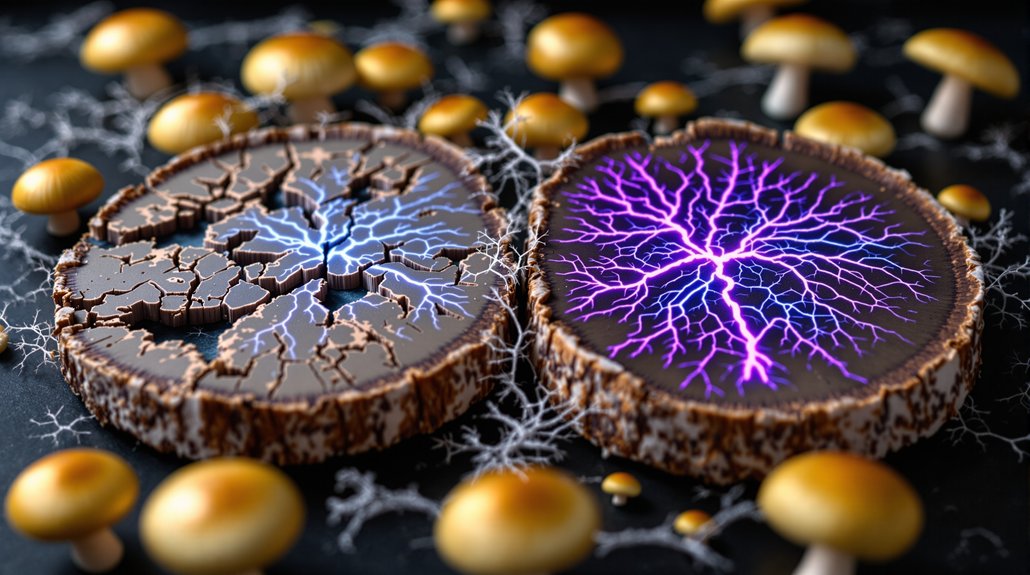Could cannabis compounds hold the key to slowing down the aging process? Recent scientific research suggests the answer might be a cautious yes, though with important caveats that keep researchers from breaking out the celebration just yet.
Animal studies paint an increasingly compelling picture of cannabis compounds as potential fountain-of-youth candidates. Both CBD and THC demonstrate remarkable neuroprotective properties in aging laboratory animals, reducing brain inflammation while simultaneously improving cognitive performance. Older mice treated with low-dose THC regimens restored their cognitive abilities to levels matching much younger animals, a finding that has neuroscientists taking notice.
THC treatments restored aging mice to cognitive levels matching younger animals, results compelling enough to capture serious neuroscientist attention.
The lifespan extension data proves even more intriguing. Preclinical studies involving worms and fruit flies report actual lifespan increases following exposure to CBD and THC. These creatures didn’t just live longer; they maintained better health throughout their extended lives, showing delayed age-related behavioral dysfunction and improved learning capabilities. The underlying mechanisms appear to involve the endocannabinoid system’s role in cellular homeostasis and aging regulation.
At the molecular level, cannabis compounds trigger several anti-aging pathways that researchers have long sought to activate. THC increases mTOR activity and synaptic protein expression in older mouse brains, effectively revitalizing cognitive function. Fat tissue in aged mice even showed improved fatty acid profiles after THC treatment.
The endocannabinoid system influences cellular senescence processes, potentially slowing the accumulation of worn-out cells that contribute to aging. This mechanism could explain why cannabinoid administration decreased the risk of certain neurodegenerative processes in animal trials. Studies using C. elegans show that CBD increased lifespan by up to 18% in these widely-used research models.
However, human studies present a more complicated narrative. While some evidence suggests cannabis might protect against cognitive decline, other research highlights potential memory impairment risks. The data remains limited by small sample sizes and inconsistent methodologies, hardly the foundation for definitive conclusions.
Clinical applications show more promise in quality-of-life improvements rather than dramatic lifespan extension. Older adults increasingly turn to cannabis for arthritis, chronic pain, sleep disturbances, anxiety, and depression. Clinical trials generally report improved well-being and quality of life among aging populations using cannabinoids. The growing acceptance of cannabis for medicinal purposes reflects its increasing recognition as a legitimate therapeutic option for age-related health challenges.
The translation gap between impressive animal results and human applications represents the current research frontier. While laboratory animals consistently demonstrate cognitive restoration, improved movement, and extended lifespans, precise pathways in humans remain under active investigation.
Scientists emphasize that most mechanistic research remains preclinical, meaning the leap from promising mouse studies to human anti-aging treatments requires considerable additional research. The mixed but encouraging findings suggest cannabis compounds deserve serious scientific attention as potential aging interventions, even if they haven’t yet earned their place in the anti-aging medicine cabinet.










